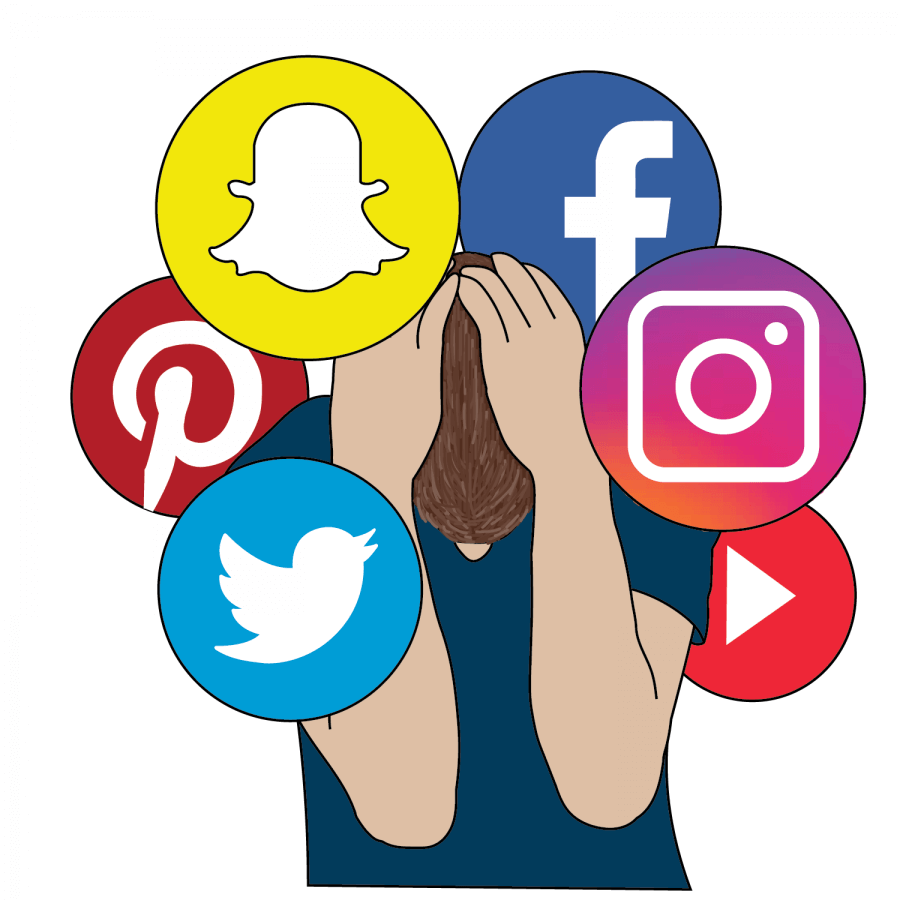The Toxic Truth Behind Social Media
January 23, 2021
With technology having rapid advances, people have been indulging themselves within various social media platforms. Social media includes online applications that allow content sharing and social networking. Though it can lead to some rather positive aspects including communication skills and ways to stay connected, there are many known negative aspects of social media.
The impact of social media can be felt by people of all ages, but according to Insider, teens are specifically affected by the phenomenon of social media. Kelly Burch of Insider, states, “For starters, studies have suggested that some teenagers are losing sleep due to social media use at night, and some are more distracted from it during the school day.” As a teen, we unfortunately can relate because I spend hours aimlessly
scrolling through Instagram, or answering Snapchats.
Not only is it a distraction, teenagers are also facing mental health difficulties. Sherri Gordon of Very Well Family, talks about the increase of depression in teenagers because of social media due to feelings of loneliness and envy. Additionally, social media gets teenagers invested and obsessed, which creates an anxious mind. Gordon also talks about how social media is negatively affecting teenagers because it gives unrealistic standards relating to people’s lives. Everything is not how it seems on social media.
Not only does social media have negative effects on teenagers, but it also does on adults. Studies from Medium show that relationships between child and parent are being affected. Parents now are also distracted by their devices on Facebook or other platforms more than ever before. Social media is a vicious cycle that circulates throughout anyone who is involved.
According to HelpGuide, more negative aspects of social media include isolation, fear of missing out, cyberbullying, and self obsessions. They state “Social media platforms are designed to snare your attention, keep you online, and have you repeatedly checking your screen for updates.” Social media may be convenient to keep in touch, but it is also easily accessible which can negatively affect time management. The constant hyper connectivity can trigger impulse control problems, make it hard to focus, and can make you a slave to your phone.
Overall, being on your phone for extended periods takes your attention away from the opportunity of creating meaningful relationships with others. It denies the face to face interactions that alleviate anxiety and boost your mood to properly benefit your mental health. Social media has brought more and more people to find their voices and revel in the opportunity to share information, but managing how you use this privilege is crucial for a person’s overall health.

